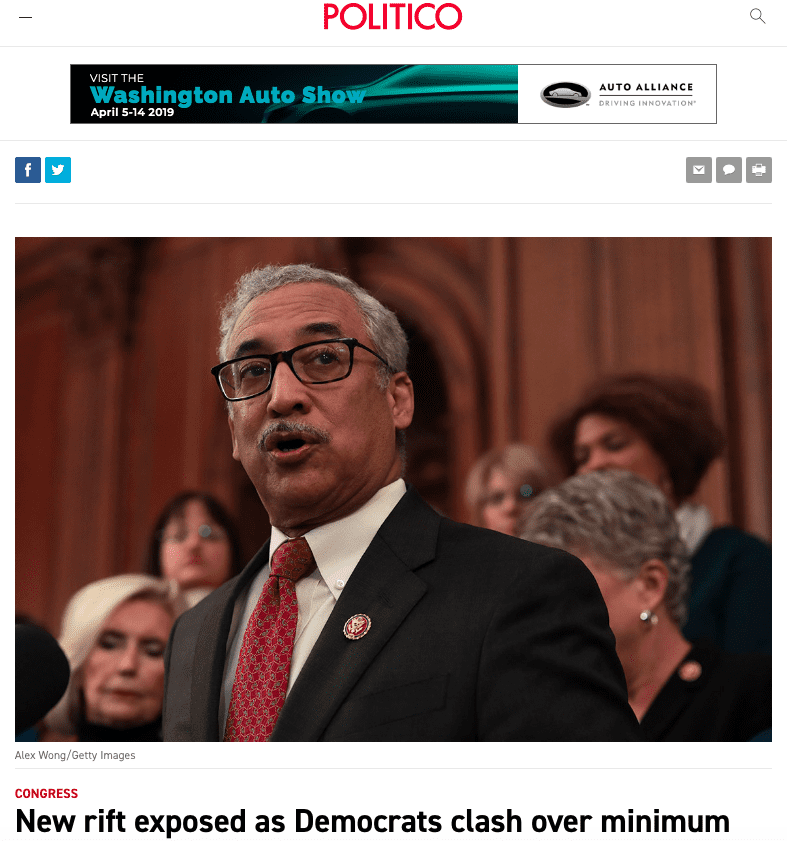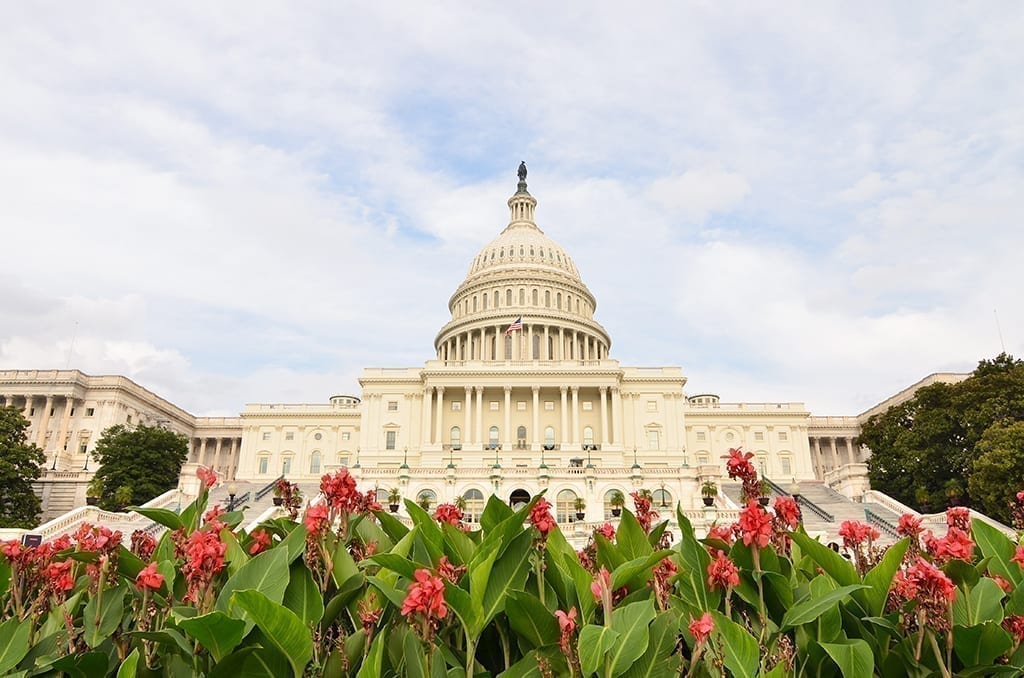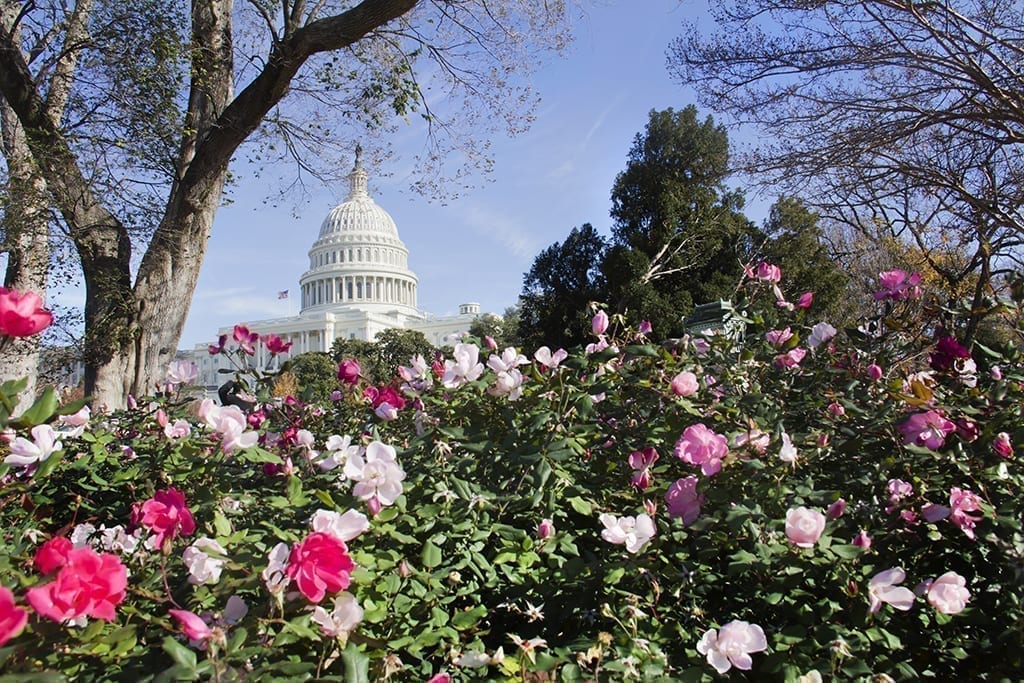A key industry issue that Society of American Florists members discussed last month with lawmakers and congressional staff has been in the headlines again recently — and the news seems favorable to small business owners concerned about rising labor costs.
During SAF’s 39th annual Congressional Action Days (CAD) in March, more than 90 industry members shared stories about the challenges they face hiring and keeping a stable staff and how efforts to incrementally raise the federal minimum wage to $15 an hour would harm their businesses. According to a recent story in Politico, some Democratic lawmakers who are considered critical votes in the House of Representatives are now expressing skepticism about the legislation. https://www.politico.com/story/2019/03/26/democrats-minimum-wage-bill-1238281
“Fifteen dollars may be right for California where I live and I’m fine with it. But it’s not right for Perry County, Alabama,” said Rep. Scott Peters (D-California). “A lot of the big companies would be able to handle this but a lot of small companies would be adversely affected.”
Peters’ comments came after a closed-door meeting last week when “some House moderates pushed back against the from House Education and Labor Committee Chairman Bobby Scott (R-Virginia),” according to Politico.
His sentiment was also reflected in a March 29 Washington Post editorial, which stated support for changes to the minimum wage but urged Congress to take a more nuanced approach.
“The Democratic skeptics correctly worry about any attempt to impose a one-size-fits-all raise on a country with vast regional differences in labor and other costs,” wrote the paper’s editorial board, adding that “research by University of Massachusetts at Amherst economist Arindrajit Dube has suggested that the optimum minimum wage would be roughly half of a given region’s median, while anything above 60 percent threatens to be counterproductive. By that logic, high-cost California cities such as San Francisco can probably absorb a $15 minimum by 2023 (per a 2016 state law); but in Louisiana, where the median wage was $15.62 per hour in 2017, the fight for $15 could end up hurting more workers than it helps.”
Raising the federal minimum wage has been a tenant of the Democrats’ platform for decades, but there appears to be an “ideological divide in the Democratic caucus” on the issue — a gap between a wave of more progressive lawmakers on the left and their moderate counterparts, many of whom represent red states or face tough re-election campaigns.
During CAD, Skip Paal, AAF, of Rutland Beard Floral Group, headquartered in Baltimore, shared his experiences dealing with wage increases that already have gone into effect in Maryland. To adapt to the change, he’s had to consolidate positions and reconfigure some compensation packages. He cautioned CAD attendees against taking the proposed federal changes lightly: “This is real and if it happens, it will have a big, negative impact on all of us,” he said.
While SAF can’t draw a straight line between the news that some moderate Democrats are backing away from the plan with its members’ efforts during CAD, Shawn McBurney, the group’s senior director of government relations, said it’s certainly true that, without input from business owners and citizens, Congress can’t make informed, fact-based decisions on the issue.
“Business owners coming to Congress and telling their stories, with real-world examples, can absolutely make a difference on any issue and especially on something that’s as important to all segments of our industry as labor costs,” McBurney said. “Whether you came to CAD last month or not, now is the time to let your lawmakers know how this kind of increase would affect you. We know they are listening.”
Read more about CAD and the issues presented this year. Interested in hosting a lawmaker at your business or learning more about SAF’s year-round efforts on the industry’s behalf on Capitol Hill? Email smcburney@safnow.org.
Mary Westbrook is the editor in chief of Floral Management.







